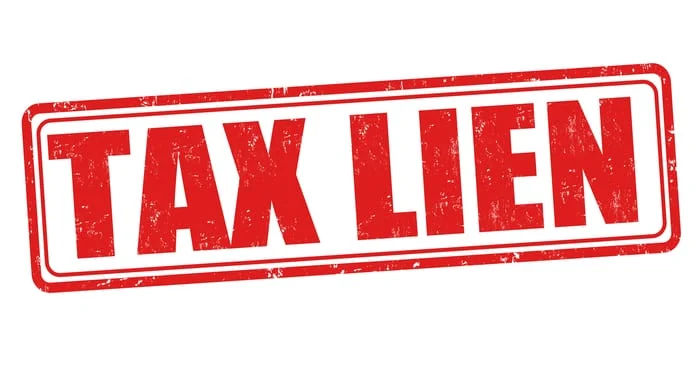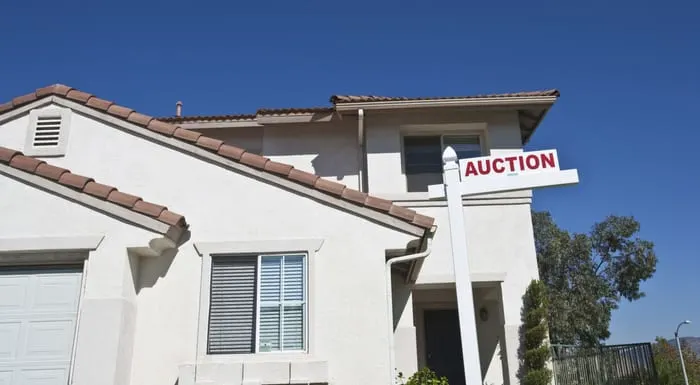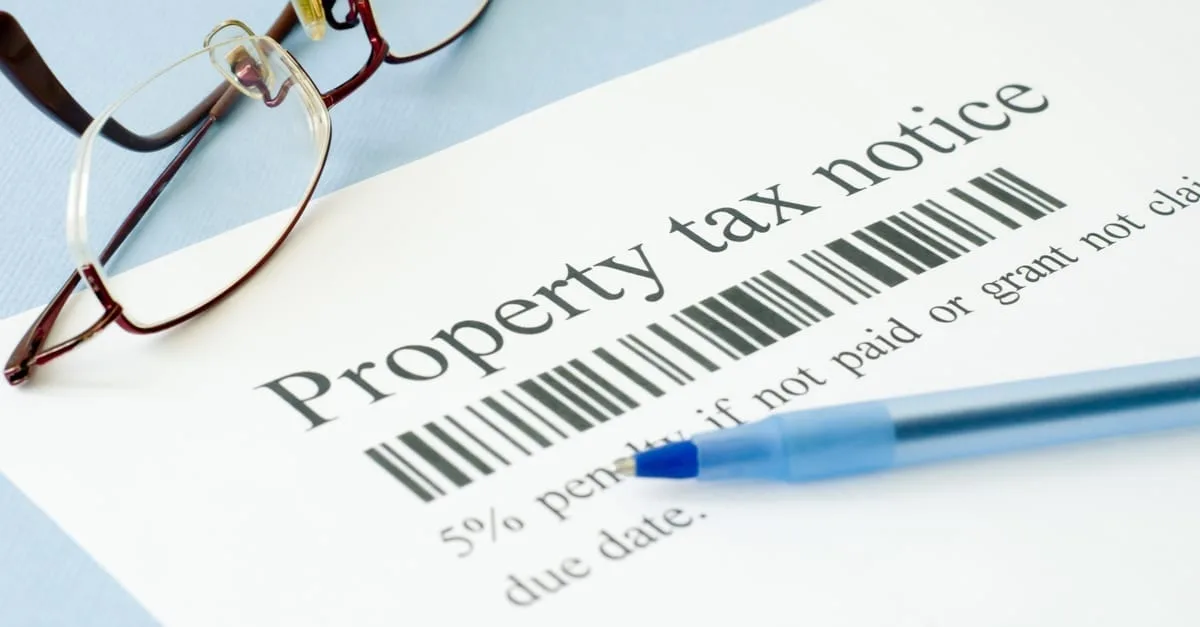There are many ways to buy properties, and tax deed investing is one of them.
However, there are some pros and cons to consider. Read on to learn everything you need to know about buying tax deeds.
What Is a Tax Deed?
A tax deed is a legal document that gives ownership of a property to a government body. These are issued if the property owner has failed to pay their property taxes for one, two, or even three years.
When a taxing entity acquires a deed to property with delinquent property taxes, it can sell the property to collect the balance due.
Real estate investors purchase properties from the taxing authorities at tax deed sales. Tax deed auctions give investors a chance to buy properties for much less than their actual value.
I first heard about this investing philosophy from Robert Kiyosaki. In fact, he heavily advocates for this in his book, “Rich Dad, Poor Dad” and on his website.
His claim is that you can buy properties for literally pennies on the dollar. In some cases, for just a few thousand dollars.
However, this almost never actually happens, and many real estate investors will tell you they’ve never closed a deal this way. Read on to learn why.
Tax Deeds and Tax Liens
Before going further, it’s a good idea to know the difference between tax deeds and tax liens. These are similar concepts. But it’s important to understand the two and what sets them apart.
Both tax deeds and tax liens are the result of property owners failing to pay the taxes due on the property. But what’s the difference?
A tax deed is an actual deed to a piece of property. An investor who buys a tax deed becomes the owner of the property.

Ducu59us/Shutterstock
A tax lien, on the other hand, is a legal interest in the property. An investor who buys a tax lien can require the owner to pay the amount of the tax lien, plus interest. If not, the owner may face foreclosure.
The investor then has to go through the foreclosure process before taking ownership. Investors buying tax deeds hope to eventually own the property.
They may sell it, or they may keep the tax deed property as a rental. Investors who buy tax liens are generally looking to generate interest on the amount of the tax lien.
Typically, the owners of the property have a year during which they can pay the amount of the lien, plus interest, to remove the lien.
The Tax Deed Sale Process
When the owner of a property doesn’t pay their taxes, the government body that collects the taxes receives a tax deed for the property in lieu of the unpaid taxes.
Typically, the government body does this after two to five years of unpaid taxes have accumulated. The specifics vary by jurisdiction, but getting the tax deed is usually a lengthy process.

Sirtravelalot/Shutterstock
The tax collector generally has to notify the owner and post notices both publicly and on the property before being granted a tax deed.
After the county or other government body has acquired the tax deed, it will be posted for sale, usually along with a list of properties.
The sale is done through a public auction. Bidders have to bid at least the amount of unpaid taxes plus any other costs and interest.
Real estate investors attend these tax sales and bid on the property. The highest bidder becomes the property’s new owner.
Tax Deed Tricks and Traps
Successful tax deed investing requires deep pockets and careful planning. Governments holding auctions require anyone who wishes to bid to put down a deposit to show they have sufficient financial resources.
After that, there are a number of ways that buying a property via tax deed sale can go awry. First, winning bidders usually have to pay the full bid amount within a short period of time after the auction.
This may be as soon as within 24 hours or within several days. If the bidder doesn’t come up with the money in the allotted time period, the deal is off.
So, you need to have liquid funds going into a sale. This is a deterrent because, unless you use a private hard money lender or line of credit, you may not have the full amount needed.

Freedomz/Shutterstock
Also, under some state laws, there is another potential catch. These states allow the former owners of the property to pay the back taxes within a certain period of time after the sale.
This allows them to regain ownership of the property. A former owner who redeems the property by paying off the tax debt also has to pay the successful bidder the amount of the bid, plus interest.
Only after the redemption period is over can the successful bidder take ownership of the property. I couldn’t find any statistics to highlight the percentage of debts that are paid off.
However, during my time managing investment properties, I talked to many investors who used this method and none of them did so successfully.
That said, it’s safe to assume that most owners of good homes (i.e. those you’d actually want to own) know the value of their equity and will ultimately pay off the balance.
Researching Tax Deed Sales
Another issue is that tax deed sales are as-is. Bidders agree to take the property without any repair allowances or even inspections.
It’s important to carefully research a property before bidding on it at a tax deed sale. A further complication is that potential bidders cannot inspect the property before bidding on it.
They can look at it from the outside. But they can’t legally enter the property to inspect it in detail before the auction.
Savvy investors check tax rolls on properties well before the auction. They perform drive-by inspections to see how it looks from the outside.
Bidders may also compare selling prices of similar properties in the same or nearby neighborhoods. They prepare bids to account for the property’s market value, minus any obvious repairs or renovations.
Given the unknowns, it’s possible for an investor to significantly over-pay for a property that has unseen issues that will be expensive to remedy.
For this reason, smart bidders include a sizable cushion to account for unknowns.
Profit Potential
Tax authorities set the amount of unpaid taxes as the minimum bid. Unlike a sale by an investor or another property owner, the value of the property is not a factor.
The government body is only interested in recouping the unpaid taxes. It publishes the minimum bids on each property before the auction.
These are typically held every quarter. This way, bidders can find out what this minimum bid on each property is in advance.

Yuriy Maksymiv/Shutterstock
Given the unknowns, careful bidders choose to bid on properties with the largest profit potential. This generally means those with the biggest gap between the minimum bid and the estimated value of the property.
Of course, this is only based on comparable sales and drive-by inspections. Regardless, the profit potential is quite attractive.
Some taxing authorities seek tax deeds on properties after only a couple of years’ worth of delinquent taxes has piled up.
This can produce minimum bids well below the property’s value. In these cases, the tax deed sales have plenty of bidders, which tends to drive up prices.
Tax Sale Example
But it’s still possible for a lucky bidder to acquire a property for a fraction of its true value. For example, say a county or other government body has posted for sale a property that has $20,000 in back taxes
Investigation tells a potential bidder that similar properties go for $200,000. A bidder can bid anything over $20,000 for the property.
But other investors are also likely to bid, so the bidder chooses to bid $50,000. The bid is successful and the investor takes possession.
The county takes its $20,000, plus interest and costs. The rest of the $50,000 is paid to the former owner.
Meanwhile the bidder pays $50,000 for a property that, assuming it doesn’t have unseen problems, is worth $200,000.
This sort of profit potential makes tax deed sales popular with real estate investors. The popularity means rock-bottom bids have less chance of being successful, of course.
And remember, most buyers know the equity they’re sitting on and do whatever they can to bring their balance current. Below is an example of what you’re likely to find when you look at a list of tax delinquent properties.
My Own Experience
A few years ago, there was a patch of land in a desirable part of my hometown that showed up on a delinquent property tax list.
On the surface, it looked like a chance to own a number of lots (it was behind a neighborhood) at a great price.
However, by looking at a map, it was evident that the land was useless. The reason? It was an old taxiway that previously connected a municipal airport with a number of homes with backyard hangars.

Tax deed sale parcel highlighted in purple
This land was useless, as the Airport Authority had decided this was a security concern, so pilots and homeowners could no longer use it.
And being so close to the airport, there were restrictions on its use. It was essentially useless land with no value. This particular instance highlights an average tax lien sale.
Either the home is in poor shape, it’s obsolete, or it’s condemned. However, there are still some diamonds in the rough for those who are patient.
Tax Deed Summary
Tax deeds are used by taxing government bodies to take ownership of properties with unpaid taxes.
Buying these tax deeds allow real estate investors to acquire properties for much less than their market value.
However, deals are hard to come by. So, it’s ultimately up to you to decide whether your time is better spent finding deals elsewhere.

